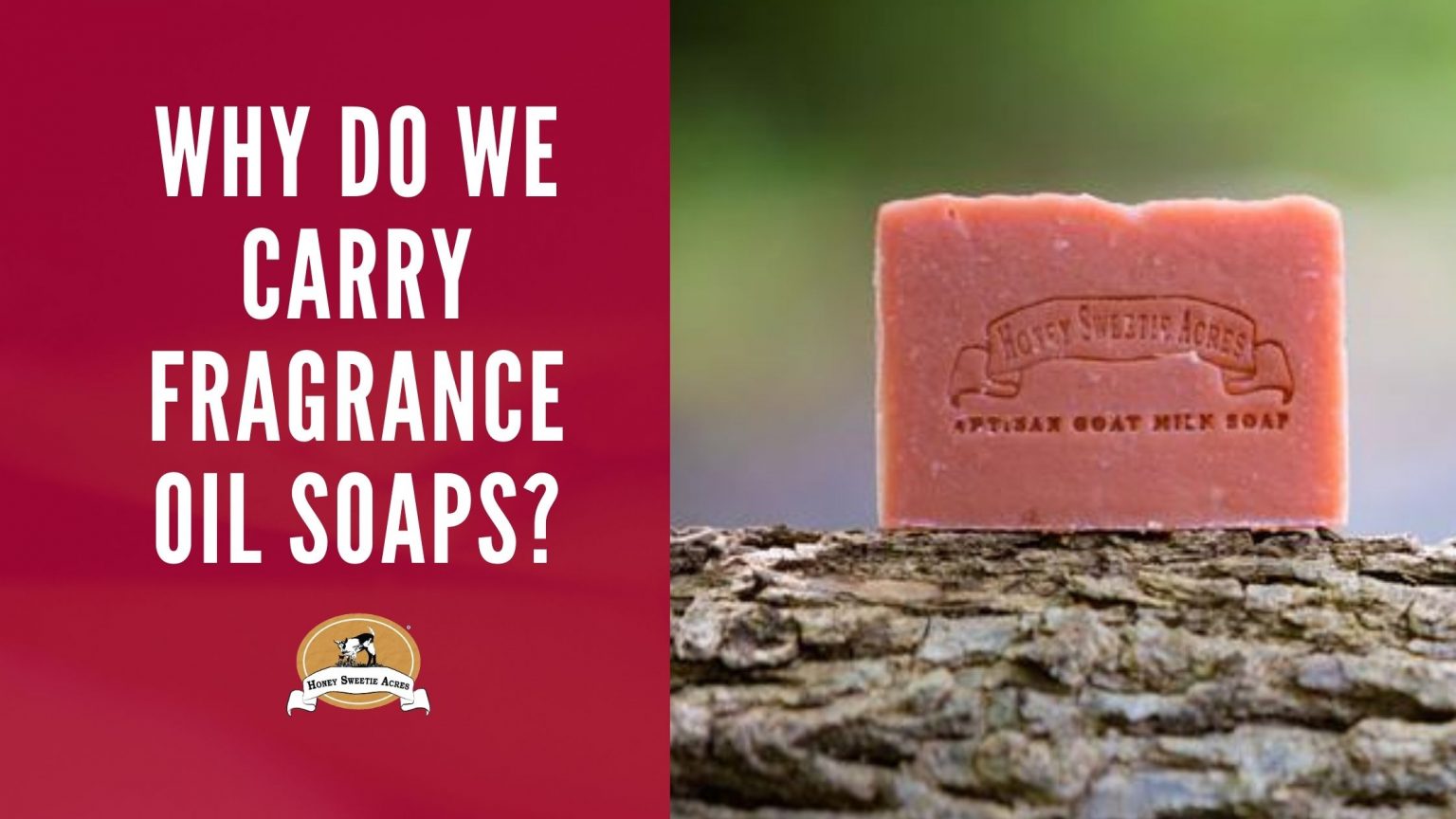Many of our Blog topics are a direct result of a conversation or question with a customer. If one person is wondering something, it is highly likely it resonates with someone else. We recently had a Facebook comment about “toxic” fragrances and that they should not be offered to our customers. The writer made an assumption about our business that I addressed as friendly as possible.
Are fragrance oil soaps bad?
As I was studying for the Professional Aromatherapy Certification, my viewpoint on “some” fragrances changed. Prior to my training, I was following the crowd was ready to ditch all fragrance oil soaps. Through a Certification in Skin Safety from the Tisserand Institute, we delved into how ingredients interact with the skin and their potential to do harm. Essential oils have just as much power to negatively impact the skin as do fragrances.
Fragrance oil manufacturers do not provide a list of their ingredients for fear of copycats. Their formulations are protected under government trade secret laws. This lack of transparency has many environmental groups concerned, and they are pushing legislatively for companies to fully disclose their ingredients.
On the surface, when we look at synthetics, they are artificial, and that is something society is moving away from. But because it is important to society, it is also important to manufacturers to respond to customer requests. There has been a shift in manufacturing to “green” ingredients, sustainable packaging, and the pursuit of “cleaner” living.
“Nature Identical” fragrances
Until then, in the fragrance oil world, there has been a move to creating “Nature Identical” fragrances, meaning they have been synthesized in a laboratory to be identical on a molecular level to the actual scent. These fragrances are a tremendous advancement in the scent world. These are the type of synthetic fragrances that we prefer to use, and they are much more expensive. We have good relationships with fragrance companies, and our contacts know that we do not want parabens, phthalates, acrylates, formaldehyde in any we decide to purchase. We were advised to investigate “Nature Identical” ingredients.
The perception among most people is that using an essential oil soap is better for the skin than a synthetic fragrance oil soap. In most cases, on the surface, this is true! But you have to look deeper, and this is where aromatherapy training came in. If we are totally honest with ourselves, the same risk of skin irritation exists with essential oils. These plant-based oils are made up of hundreds of individual constituents. Many of them can cause allergic reactions and skin sensitization. To assume an essential oil is safe because it comes from a plant is not supported by science.
We have several customers who are very allergic to Terpenes. Terpenes are found in almost every essential oil there is. They are a defense mechanism for many plants and are also responsible for the scent the plant exudes! They are used in perfumery and in paint & resin manufacturing as well. They are mother nature’s CHEMICAL!
I have spoken to a multitude of people who are allergic to Tea Tree Oil. In some cases, it was overuse that sparked their sensitivity. In others, the reaction is to the sesquiterpenoid content (terpene again). It is a much more common allergy than many realize. Check out this PubMed article on Tea Tree as an allergen. Read: https://pubmed.ncbi.nlm.nih.gov/9838722/
Other allergenic constituents of essential oils include Limonene and Linalool, both found in Lavender essential oil and many others. Check out this article by Healthline: https://www.healthline.com/health/essential-oil-allergic-reaction#symptoms
Essential oil soaps versus Fragrance oil soaps
Another important point in essential oils versus fragrance oils in soap. Essential oil molecules are extremely small; they are measured in Daltons. It is a very small unit of mass, about the same size as a hydrogen atom! This is why they can absorb into the skin and eventually the bloodstream. Fragrance Oils have a much larger molecular mass (a bigger molecule) and sit on top of the skin rather than absorb into it. Give that soap is a wash-off product, the contact time with the skin is extremely minimal. Even essential oils require several hours for absorption, and even then, only 10% may reach the target.
Unfortunately, you will read on the internet that your skin absorbs 95% of what it comes into contact with. This is fear-mongering for the sake of sales and is simply not true. It is easily dismissed with a quick study of skin anatomy and function. The speed of transmission is affected by molecule size, the type of carrier being used (cream, oil, gel), the skin temperature, skin moisture level, genetics, and so much more.
Using science, we know that the risk of an allergic reaction is dependent on many factors. We know that some synthetics can be safer than some plant oils! We know that everyone’s immune system is different, and some people can only tolerate totally UNSCENTED products.
It’s all about choice
Lastly, I will wrap up this blog by simply saying, we believe in giving people a CHOICE. I am here to advise customers, not dictate to them. I advise caution where any scent is concerned as sensitivity is rampant in society. We do not NEED to sell Fragrance Oil soaps, but for the customers who cannot use Essential Oils soaps, it gives them another option. Most scents have GRAS status (Generally Recognized As Safe) and contribute to our sense of well-being, evoke pleasure and contribute positively to our lives in the form of scent-triggering memories!
As a formulator, it gets quite frustrating when an ingredient is vilified that has true potential to help the skin. The fear around certain preservatives is another example. Unabated mold, mildew, and bacteria are far more life-threatening than 0.01% of a preservative. That’s my “soapbox” for today. Follow the science!


